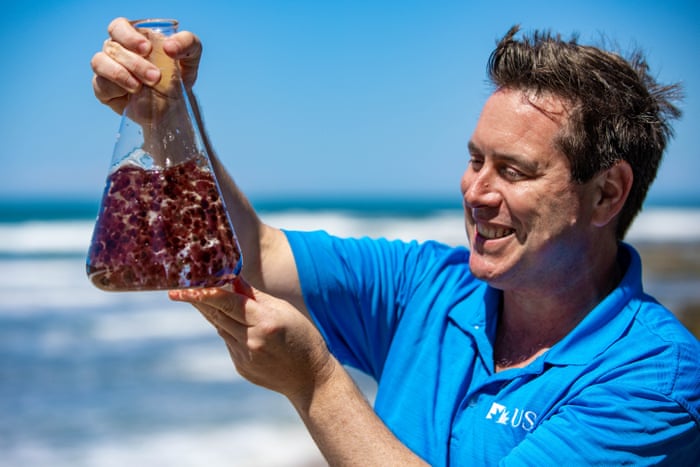
(The Guardian) Australian scientists crack genome code for methane-busting seaweed
Australian scientists have made a major breakthrough on seaweed that can be fed to cattle and drastically reduce their methane emissions.
The researchers are confident they have cracked the genome code for Asparagopsis.
The species of seaweed produces a chemical compound called bromoform, which prevents the formation of methane during the digestion of food. Feeding the red seaweed to livestock can slash methane emissions by more than 80 per cent.
An international research team has spent three years studying the genetics of the warm water seaweed, which is native to Australia. The team has figured out how to grow high quality crops quickly and in big volumes. “So we’ve got the genome blueprint for us to be able to fast track the development of the seaweed,” marine scientist Prof Nick Paul said.
Paul, from the University of the Sunshine Coast, said the research began after it was discovered that different seaweed produced different levels of bromoform, depending on how it was farmed and processed. The researchers from Australia, New Zealand and Japan also found some female seaweed performed better than male seaweed in helping to remove methane from the atmosphere.
“The active ingredient that reduces methane in the rumen of the cattle is about 20 per cent higher in females than it is in males” Paul said. “If we can make all females then that gives us a 20 per cent boost.”
The team has been gathering specimens in an “underwater wonderland” off a rocky shoreline at Moffat Beach near Caloundra in Queensland. The 12-person team then cultured the seaweed in a laboratory as well as large outdoor tanks.
The research was focused on ways to grow enough Asparagopsis to have a meaningful impact on global greenhouse gas emissions. (AAP)
